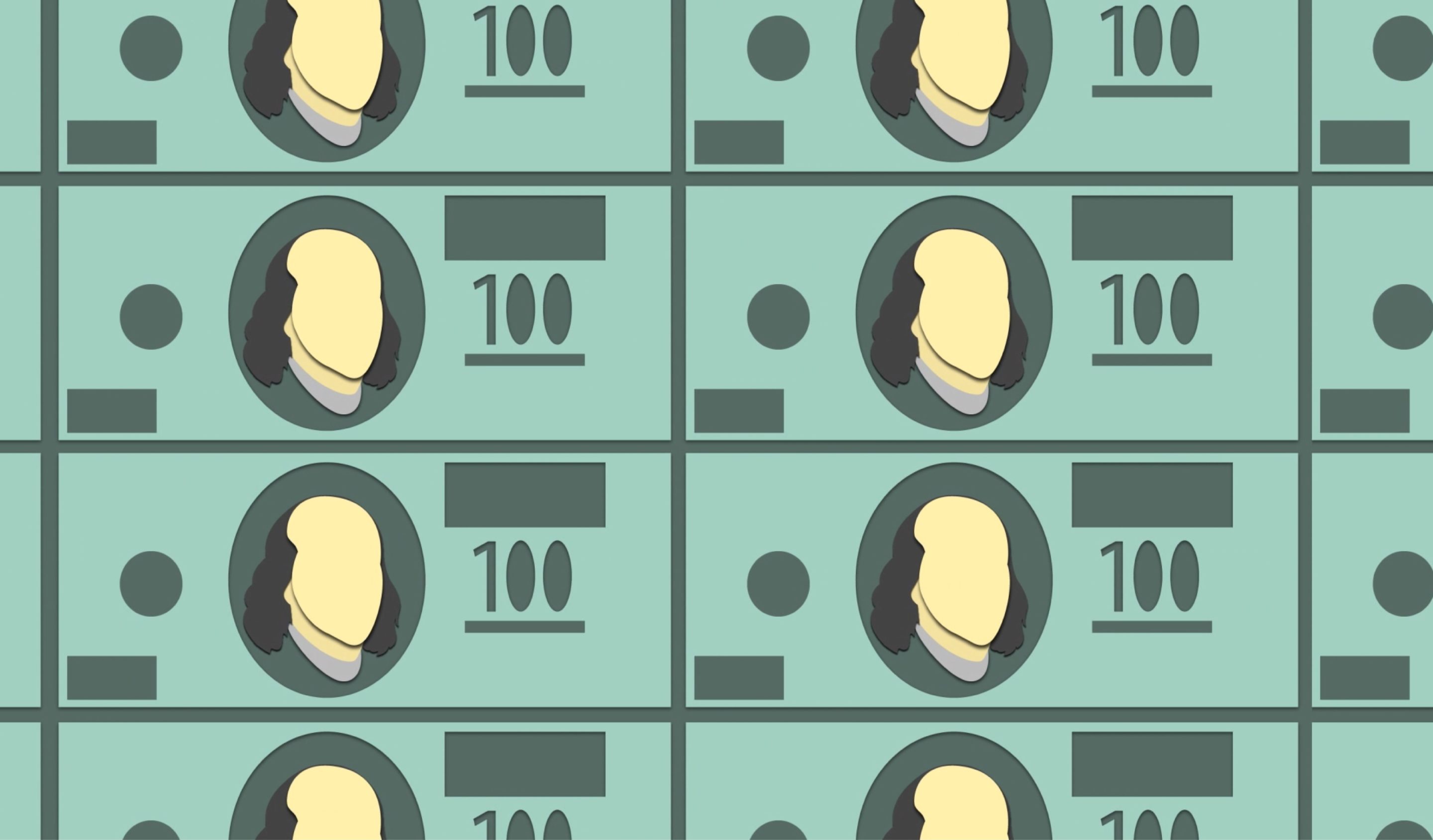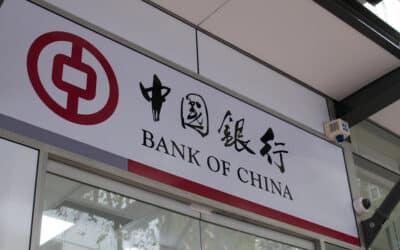Earlier this month, Larry Kudlow insisted that it is “it’s incumbent on the U.S. government, no matter who’s in power, to maintain the reserve currency status of the dollar.” Kudlow laments that a toppling of the dollar from that perch “seems to be the direction we’re going in.”
Kudlow’s remarks came a day after Donald Trump declared that China is trying to displace the U.S. Dollar [sic] as the NUMBER ONE CURRENCY” and that if this occurs, it would be the biggest defeat for our Country [sic] in its history.”
Neither Trump nor Kudlow actually explain why maintaining reserve currency status is so important. After all, it’s clear that it is not necessary for a country’s currency to be a reserve currency in order for that country to have a high standard of living and a high degree of economic freedom. We could simply look to Norway and Switzerland to see that.
What’s Good for the Government Isn’t Necessarily What’s Good for the People
Trump and Kudlow seemingly can’t tell the difference between what is good for the U.S. government, and what is good for the people. The idea that global reserve currency status for the dollar is essential to “America” relies on the false notion that the interests of the U.S. regime and the interests of ordinary taxpaying Americans are one and the same. These interests rarely coincide, however, and they certainly don’t when it comes to reserve currency status. This is especially the case when the dollar is unbacked by any commodity like gold, and is simply a floating fiat currency that can be inflated at the will of the regime at any time.
That global reserve currency status benefits the regime itself is obvious. This status for the dollar does indeed allow the regime to more recklessly inflate the dollar and increase deficits, thus enhancing the U.S. regime’s ability to bribe voters with enormous welfare programs and involve the U.S. regime in a dazzling array of wars that have nothing to do with defending US territory. None of this, however, enhances the standard of living of Americans who pay the bills.
Rather, for Trump and Kudlow, it appears that the supposed importance of reserve currency status is not about economic concerns, but is really a political project. This shouldn’t surprise us given many of the narratives surrounding the dollar’s status—which focus on China and Chinese geopolitical power as the main reason to fear a decline of the dollar. This isn’t about protecting your wealth or reining in government power. It’s about enhancing U.S. government power in the name of fighting the latest foreign “axis of evil.”
In any case, there is no imminent threat of the Chinese yuan (RMB) displacing the dollar for a variety of reasons. The dollar’s role in the world economy is still huge, and the dollar remains the most used currency by far. This becomes all the more obvious when we look at how much the U.S. dollar still dominates foreign exchange reserves—which are assets in foreign currencies held on reserve by central banks. These reserves are partly an indication of just how much central banks anticipate dollars will be needed to engage in international trade.
Dollars still make up 58 percent of foreign exchange reserves. That’s far above even the second-place currency, the euro, which is at a mere 20 percent. All other currencies are far behind that. The Japanese yen makes up about 5.5 percent of all reserves, and the pound sterling makes up under 5 percent. The RMB is in fifth place at about 2.7 percent. But even if the RMB did become a top-tier global currency, this would pose no threat to Americans who have never been more secure internationally. Rather, reserve currency status for the RMB would primarily enable the Chinese regime to further rip off its own domestic population for the same reasons reserve currency status allows the US regime to further rip us Americans off.
Why Reserve Currency Status Enhances State Power at the Expense of the Taxpayers
For now, the dollar reigns supreme, and being the country whose currency enjoys global reserve status brings advantages to the U.S. regime. Reserve currency status brings a greater global demand for dollars. This means more of a global willingness to absorb dollars into foreign central banks and foreign bank accounts even as the dollar inflates and loses purchasing power. Ultimately, this means the US regime can hoodwink the voters into accepting more monetary inflation, more financial repression, and more debt before domestic price inflation becomes a political problem for the regime.
After all, even if the U.S. central bank (the Federal Reserve) creates $8 trillion in new dollars in order to prop up U.S. asset prices, much of the world will take those dollars out of U.S. domestic markets, and this will reduce price inflation in the U.S.—at least in the short term. Moreover, the fact the dollar dominates in global trade transactions means more global demand for U.S. debt. Or, as Reuters put it in 2019, the dollar is used “for at least half of international trade invoices—five times more than the United States’ share of world goods imports—fuelling demand for U.S. assets.” Those assets include U.S. government debt. In fact, as Robert Murphy notes, this demand for U.S. assets will be “heavily tilted toward debt (rather than equity in growing companies).” This rush for U.S. debt pushes down the interest rate at which the U.S. government must pay on its enormous $30 trillion debt.
All in all, reserve status for the dollar means a lot more U.S. government spending. This produces no net benefit since government spending in itself distorts the economy, drives up prices in some sectors, and otherwise redistributes wealth according to political considerations, rather than according to the needs of consumers and entrepreneurs.
None of this is good for the productive people in the U.S. For one, deficit spending—whether for elective wars or welfare programs—must always be paid for, either in the form of of price inflation (i.e., the inflation tax), or in terms of future ordinary taxation. Moreover, reserve currency status creates political cover for the regime’s easy-money policies in the short term. That is, global demand for the dollar helps create the temporary impression that monetary inflation comes with few downsides. This, however, can only continue until the dollar’s reserve status ends or even significantly weakens. In the meantime, the world will have been flooded with dollars.
This was neither necessary nor advisable, and this dollar profligacy sets the stage for the inevitable end of every inflationary reserve currency: when global demand for these the currency starts to fall, holders of that currency will face potentially catastrophic price inflation.
Reserve currency status, by politically fostering more deficit spending, also harms those parts of the private economy that depend on private investment. As deficit spending increases, the economy is flooded with ever larger amounts of government debt backed up by tax dollars. This attracts huge amounts of wealth to government Treasurys that otherwise would have gone into private-sector investments.
The Effects of Losing International Currency Power
Often, discussion about the dollar’s reserve status creates a false dichotomy between total domination of the global monetary system on one hand and complete abandonment of the dollar on the other. A more likely scenario is that the dollar will weaken considerably but will remain among the most often used currencies. After all, even after the pound sterling lost its status as reserve currency in the 1930s, it did not disappear.
For example, let’s say the U.S. dollar sinks to 40 percent of all foreign reserves and is only used in one-third of all international trade invoices—instead of one-half, as is now the case. This would not necessarily destroy the dollar or the U.S. economy, but it would certainly constrain the U.S. regime’s ability to pile on another trillion dollars worth of debt without the true costs of mounting debt becoming abundantly clear. Perhaps more importantly, a world less awash in dollars will mean a world with less demand for U.S. assets such as U.S. government debt. That means higher interest rates for the U.S. government and less of an ability to finance elective wars by inflating the currency.
Naturally, politicians and pundits such as Trump and Kudlow view any threat to this kind of state power as a bad thing. At this point, however, how we feel about it is irrelevant. It’s going to happen regardless of our feelings on the matter. The only way it doesn’t happen is if the U.S. regime suddenly starts slashing deficits and government spending, embraces a strong dollar policy, and perhaps even anchors the dollar to a commodity like gold. None of those things is going to happen without first experiencing a wakeup call on the level of losing currency reserve status. The good news is such a wakeup call will weaken the U.S. regime, potentially forcing policymakers to embrace a more sane fiscal and monetary policy.
This article was originally featured at the Ludwig von Mises Institute and is republished with permission.































